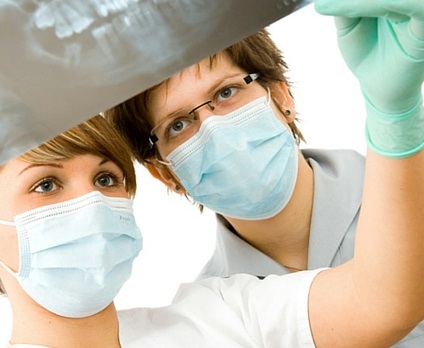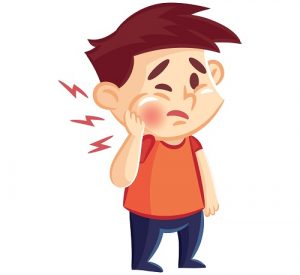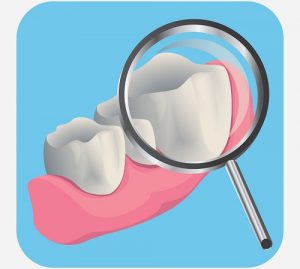Gingival Abscess: Prevention and Treatment

A gum abscess is one of the most painful and noticeable dental problems you can experience. This type of gum disease is one of the primary causes of emergency dental visits. An abscess can come on suddenly and without warning, but in most cases, the underlying cause has been building for some time. Preventing the infection that eventually leads to a gum abscess is the key to avoiding the pain they cause.
If you’re in need of a dentist fast to deal with an abscess, find a dentist here.
“Most people think that a swelling or abscess on the gum is similar to a pimple and will completely resolve on its own. An abscess on the gum is a sign of an underlying dental problem that requires attention, especially if it seems to have cleared up and then come back.”
What is a Dental Abscess?
There are a number of different dental abscesses, such as the gingival abscess, the periapical abscess, and the tooth (or abscessed tooth), which is basically a sac filled with liquid or pus. It forms below the gum line and creates a swollen bump or lump on the gum. There is a great deal of pressure inside of abscess, which is what causes the pain and can ultimately lead to more tooth decay if not treated.
In most cases, you’ll want to seek immediate treatment for a gingival abscess to relieve the pain and to prevent the infection from spreading. Left untreated, periodontal abscesses will not only cause ongoing discomfort but can also put the teeth in the area at risk.
An abscess is caused by an infection. Usually, the infection starts because food or other debris is trapped between the teeth and gums. When you don’t floss or brush, it’s possible for the debris to cause inflammation that eventually turns into an infection.
It’s also possible that ongoing, untreated periodontal disease will lead to abscesses. And if there is an infection in the tooth, it might eventually spread to the gums and cause an abscess.
Anywhere are harmful bacteria grow in the pockets of the gums, it’s possible for an abscess to develop.
For most people, the issue with bacteria growing is going to be present long before they experience any pain and serious gum disease or tooth decay. The best way to deal with an abscess is to prevent it from forming in the first place. Brushing, flossing, and regular dental cleanings can go a long way in preventing abscess pain because they ensure that nothing is stuck near the gums and that bacteria doesn’t take hold. The chances are that, if you develop an abscess, there’s been a problem brewing for some time even though you may not have experienced any symptoms.
How Do You Know You Have an Abscess?
It’s fairly easy to tell if you’ve developed a periodontal abscess because it’s painful. Most people experience sharp, stabbing pain in the gum or jaw. It can begin as mild to moderate pain and develop into an intense pain in a short period of time.
It’s also possible to experience symptoms you’d associate with an infection, such as a fever or swelling in the area around the abscess.
You might also experience other less immediate but still unpleasant symptoms, such as bad breath or a bad taste in your mouth that is caused by pus leaking from the abscess into your mouth.
If you are lucky enough to experience no pain with your abscess, it’s still important to seek medical attention. Painless abscesses are rare, but can still do plenty of damage if left untreated. You need to do everything you can to ensure the infection causing the abscess does not spread throughout your mouth and into other parts of your body.
How Do You Treat an Abscess?
The best way to treat an abscess is to prevent it from happening in the first place. Make sure you brush and floss as directed and that you attend your bi-annual dental cleaning. These steps will go a long way in keeping debris from sticking around and causing your problems and will improve your overall dental health.
Even with fastidious dental care, though, it’s still possible to develop an abscess. At the first sign of a bump or lump, you should see your dentist. This will prevent you from dealing with the intense pain that can develop from an abscess and it will also give your dentist an opportunity to determine if there is a more serious problem. The infection needs to be treated right away, but you also need to know that you’re dealing with an infection and not something else.
To treat an abscess, your dentist will drain the pus from the lump and more than likely give you antibiotics to get the infection under control. It might be necessary to remove the infection, depending on where it’s stemming from and how serious it might be.
In some cases, gum surgery, a root canal, or a tooth extraction are necessary.
Though it’s rare, it’s possible for the infection in an abscess to travel to the sinus cavity, throughout the face, or into the jawbone. In order to prevent these very serious issues from occurring, you need to seek treatment as soon as possible when you develop an abscess.
Preventing an Abscess
Prevention of an abscess is easy, even though it isn’t always possible to prevent it. Make sure you adhere to a good oral hygiene routine and that you see your dentist on a regular basis. In most cases, daily brushing and flossing will be enough to prevent bacteria from accumulating under the gums and causing an abscess. If you are prone to problems, your dentist might recommend an antibacterial mouthwash or further treatment to prevent infections from developing.
One of the most important things you can do to prevent an abscess and concerning your dental health, in general, is to be aware of what’s going on in your mouth. Don’t assume that everything is fine and don’t miss dental visits because you don’t think they are necessary. An abscess is very painful and you’ll want to do everything you can to avoid getting one. It’s also important to know what’s normal for your dental health to avoid other serious problems.
In addition to brushing and flossing on a daily basis, make sure you are doing these things properly. Many people assume brushing twice a day is enough, but if they are not brushing properly, it won’t do them much good. Consider investing in a spinning or automatic toothbrush that gives you a gentle, yet thorough cleaning. And if you have questions about brushing and flossing properly, speak to your dental hygienist and ask for a demonstration of proper brushing and flossing techniques.
Relate Posts to Read:
Abscess Tooth: Symptoms Treatment
Relate Posts to Read:
Hard Bump on Roof of Mouth
Medically Fact-Checked & Written by Our Dental Editorial Team
You can read more about our editorial guidelines by clicking this link and learn more about the Emergency Dentists USA editorial team here.






